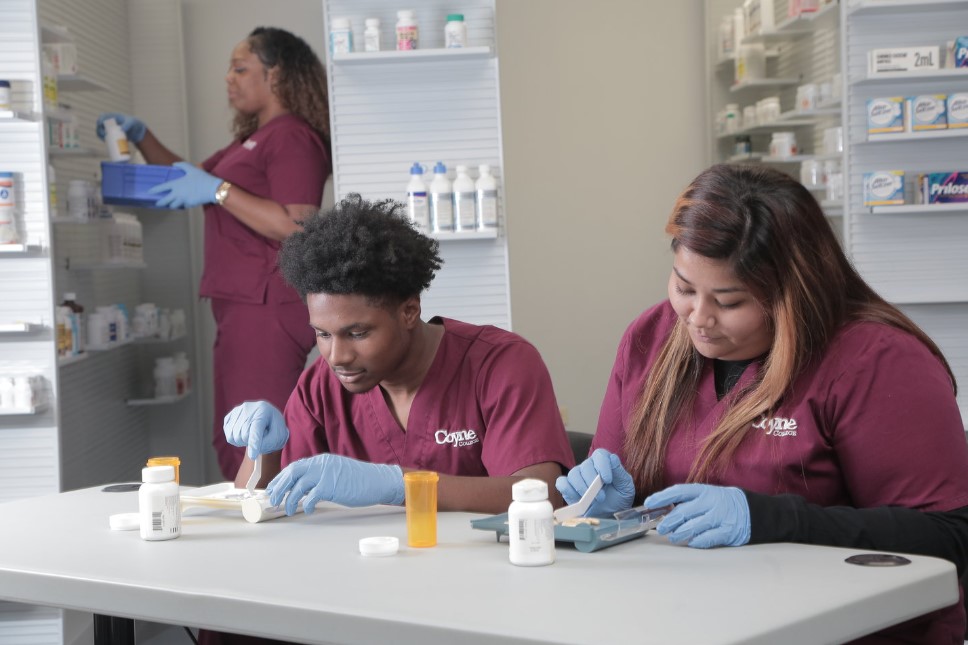Introduction to Pharmacy Technician Training
Pharmacy technician training courses prepare individuals for a crucial role in the healthcare industry, assisting pharmacists in dispensing medications and providing patient care. This guide explores the essential components, benefits, and career opportunities associated with pharmacy technician training. For more detailed information, you can visit pafikotabanyuwangi.org.
Core Components of Pharmacy Technician Training
Pharmacy technician training courses typically cover a comprehensive range of topics to equip students with the necessary knowledge and skills:
1. Pharmaceutical Fundamentals
- Drug Classification: Understanding different categories of medications and their uses.
- Dosage Forms: Familiarity with various forms of medication, including tablets, capsules, liquids, and injectables.
- Medical Terminology: Learning terminology specific to pharmacy practice.
2. Pharmacy Operations and Procedures
- Prescription Processing: Procedures for receiving, interpreting, and processing prescriptions.
- Dispensing Medications: Techniques for accurately measuring, compounding, and labeling medications.
- Inventory Management: Principles of managing medication stock and supplies.
3. Pharmacology and Therapeutics
- Drug Interactions: Understanding interactions between medications and potential side effects.
- Patient Safety: Practices to ensure safe handling, storage, and administration of medications.
- Clinical Practices: Protocols for patient counseling and adherence support.
4. Pharmacy Law and Ethics
- Regulatory Compliance: Knowledge of federal and state regulations governing pharmacy practice.
- Ethical Considerations: Understanding ethical dilemmas and patient confidentiality.
Benefits of Pharmacy Technician Training Courses
1. Career Preparation
- Entry-Level Competence: Training prepares students for entry-level positions in retail pharmacies, hospitals, and other healthcare settings.
- Certification Eligibility: Completion of accredited training programs may qualify students to sit for national certification exams.
2. Practical Experience
- Hands-On Training: Opportunities for practical experience in simulated pharmacy environments or through externships.
- Skill Development: Enhancing technical skills in medication preparation, customer service, and pharmacy software usage.
3. Professional Development
- Continuing Education: Foundation for ongoing professional development and advancement opportunities.
- Networking: Connecting with industry professionals and potential employers during training programs.
Career Opportunities for Pharmacy Technicians
Pharmacy technician training prepares individuals for various roles within the healthcare industry:
- Retail Pharmacies: Chains, independent pharmacies, and online pharmacies.
- Hospital Pharmacies: Inpatient and outpatient settings, assisting pharmacists in clinical environments.
- Long-Term Care Facilities: Providing medication management services for residents.
Choosing a Pharmacy Technician Training Program
1. Accreditation
- ASHP Accreditation: Programs accredited by the American Society of Health-System Pharmacists (ASHP) ensure quality and adherence to industry standards.
- State Requirements: Consider programs that meet licensure or registration requirements in your state.
2. Program Duration and Format
- Length of Program: Typically ranges from a few months to a year, depending on the program’s structure and intensity.
- Online vs. In-Person: Evaluate whether the program offers flexibility with online courses or requires in-person attendance.
3. Cost and Financial Aid
- Tuition Fees: Compare program costs and consider financial aid options, scholarships, or employer tuition assistance programs.
- Job Placement Support: Programs offering job placement assistance or externship opportunities may enhance career prospects.
Conclusion
Pharmacy technician training courses provide a solid foundation for individuals aspiring to enter the healthcare field and play a crucial role in medication management and patient care. By completing accredited training programs, students gain essential knowledge in pharmaceutical fundamentals, pharmacy operations, pharmacology, and ethics. This preparation not only qualifies them for entry-level positions but also opens doors to certification and career advancement opportunities within diverse healthcare settings. Choosing the right training program is key to building a successful career as a pharmacy technician, contributing to the healthcare team, and making a meaningful impact on patient well-being.


